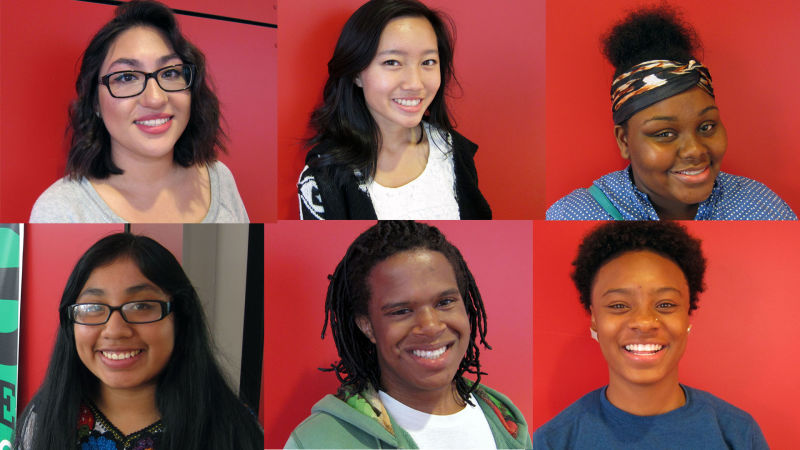Shannon Carey has been exploring powerful writing with her class of juniors in an Oakland, California public school. To help her students see why powerful writing matters, she's framed it as a form of powerful resistance, a way to be heard on the issues young people care most about. That framing makes the imperative of writing clearly and with force more explicit to these young people who have already experienced their fair share of discrimination and alienation.
Carey asked her students to read James Baldwin's essay "A Talk to Teachers," in which he lays out the the influence teachers have to shape a new generation of thinkers and revolutionaries who will change the society we live in. The students dissected the text, looking for specific examples of how Baldwin makes his argument compelling. Carey explains the assignment in detail on her blog:
...students then investigated what writing moves Baldwin made that were so powerful. The criteria they generated was clear and, to me, is a clear and strong baseline for what powerful, defiant writing is. Here are some of their criteria:
He speaks from the heart
He does not sugarcoat the truth
He uses repetition to build intensity and cohesion
He uses powerful language
He is fearless
He uses history to talk about the present
Then, Carey asked the students to choose a real audience and write their own "letter to teachers" about how education could change to fit them better.
"I started my school year by asking my challenging my [sic] juniors with another essential question: how might we own and control our education? I’ve asked them to think about why they are still in school (they all know plenty of people who have dropped out or been pushed out of school), and what they want out of the valuable hours of their wild and precious life that they spend in our classroom. This resulted in a classroom manifesto, and in my serious consideration about how to radically individualize my class. It’s exciting and it’s dangerous, so, naturally, I’m digging it.
I also want my beautiful young people to realize that, as 11th graders, they have more immediate experience and expertise in American public schools than any other young people, save the (frazzled, worried, ass-kicking) seniors. They have a lot to say. I am re-envisioning an important part of my work as being ways for other humans in the US to hear what our young people need, what they notice, and what they are thinking."
The students came up with powerful messages for the educators in their lives. Carey picked six students to read their essays. Listen to them below.
A short clip of Baldwin speaking about the experience of education for black people back in 1974.


